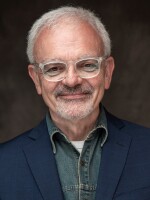RENEE MONTAGNE, host:
President Bush is in Stralsund, Germany for a largely ceremonial visit with Chancellor Angela Merkel. The president is on a six-day overseas trip, which includes the meeting of the G8 economic powers this weekend in St. Petersburg, Russia. This trip comes at a time when the U.S. and Europe are stressing diplomatic solutions to some vexing problems: the North Korean and Iranian nuclear programs, and the escalating violence in Middle East.
NPR's Don Gonyea is traveling with the president and joins us now.
And Don, you're in the former East Germany.
DON GONYEA reporting:
Mm-hmm.
MONTAGNE: What's the agenda for the president there?
GONYEA: Well, the president always likes to go to places that were once under the rule of Communism and talk about democracy. And the former East Germany certainly provides him an opportunity to do that. But this visit is really all about the new and very real friendship between President Bush and the new German Chancellor Merkel. And Renee, I have to tell you, to help cement the friendship Mr. Bush was presented with the traditional and ceremonial barrel of herring during a welcome ceremony in Stralsund today. It was a small barrel. I'm not sure when any one last presented you with a barrel of herring as a gift, but the president was most appreciative today.
And really, let me add, Merkel - Chancellor Merkel can really be seen as the president's best new friend on the continent, given the pending departure of Tony Blair in Britain and the recent departure of Silvio Berlusconi in Italy, both very close allies. The White House now views Germany as a very critical component of U.S.-European relations.
MONTAGNE: This, of course, visit in East Germany comes in advance of the G8 Summit in Russia. And talking about relationships...
GONYEA: Mm-hmm.
MONTAGNE: ...what about President Bush and President Vladimir Putin?
GONYEA: It is a relationship that's gotten more difficult since the president and Putin held their first meeting. It was in Slovenia almost exactly five years ago. That's when Mr. Bush declared that he looked into Putin's eyes and had gotten a sense of his soul. Well, these days the White House insists it's still a close relationship, but it also complains about Russian backsliding on democratic reforms.
Just a few months back, Vice President Cheney was in Vilnius, Lithuania. And there he delivered a really blistering critique along these lines of Russia. And yesterday Putin, in a U.S. TV interview, responded that it was like an unsuccessful hunting shot from Cheney. You know, we all know what he was referring to there. So there's more than a bit of tension, and all of that hangs over this weekend's summit.
MONTAGNE: Will, though, the U.S. confront Russia on these issues at this meeting in St. Petersburg?
GONYEA: Perhaps a bit. But really look for the pressing crises in North Korea and Iran, and now in the middle - Mid East, with the capture of those Israeli soldiers by Hezbollah, and the retaliation by Israel. Look for all of that to dominate. These are difficult issues, and they will really be the primary talk of this summit.
MONTAGNE: Don, thanks very much.
GONYEA: My pleasure.
MONTAGNE: NPR's White House correspondent Don Gonyea. He's traveling with President Bush in Germany. Transcript provided by NPR, Copyright NPR.







